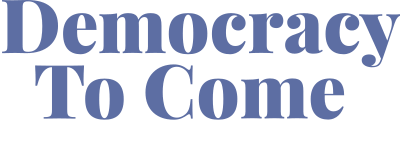I visited Copenhagen in the winter snow to experience democracy at work in a University department. When I set out on exploring democracy at work, one of the last places I expected to find its practice was within the higher education sector. In the UK, we have a heavily bureaucratised and top-down system that would make any kind of widespread democracy in a university very difficult, if not impossible. Danish Technical University (DTU) showed me that even within our sector we can dream and strive towards democracy at work. DTU is a university with approximately 12 thousand students and 6000 employees. It is based in the suburbs of Copenhagen, Denmark. There are roughly 600 administrative personnel (typically finance, HR, marketing etc) including 180 IT staff. The IT department I visited builds new systems, manages IT projects and supports the implementation of built systems. The department had, from its inception, been organised hierarchically with the leader directing and “group managers” operating beneath this to implement and supervise operations and projects. However, there was an increasing feeling that people were not taking accountability for decisions, not making decisions at all (but deferring to management unnecessarily) and to some degree invoking the leaders name to say whether a course of action should go ahead or not (rather than thinking independently) leading to a lack of initiative, ineffective meetings and avoidance of conflict.

It was decided to implement sociocracy (or as DTU refer to it, “Teal”) in a slow manner to give people a chance to experiment and adjust over time. Not all teams had become circles as of my own visit as it was felt that the process should be more organic. Gradually it was hoped that people would come to adopt practices as they experienced them and saw them working effectively. DTU had several active circles including an anchor circle, vision circle, feedback circle and a “kit to teal” circle that drives and supports implementation of sociocratic methods. The two main issues that this trip enabled me to experience more was the interrelated issues of managers giving up power and workers having the bravery and/or desire to take up power. We will explore these issues much more concretely in future publications from the project (a book is already in the works) but nowhere else have I witnessed management working so hard to give away power to employees and employees working so hard to adapt to new circumstances. One of the problems with shifting to democratic organizing is that the vast majority of us have been raised through hierarchical education systems, families and workplaces and more or less conditioned to not be autonomous and not make decisions. To ask people to abandon these power structures after 30 or 40 years is incredibly difficult. It can be liberating but it can also be terrifying and simply unwelcome. Many people choose to just walk away.
[Insert picture 26 – DTU maze]

It is up to us as researchers to understand why and how this happens and how we can make it more comfortable for managers and subordinates to make the transition. Copenhagen was truly wonderful to learn more about this, and even more wonderful in the snow. I was asked to visit a bar later in the day and experienced (for a few hours) Denmark’s relaxed rules on smoking in bars. This was a transition I had made years before (in the UKs 2007 smoking ban) and, despite not being a smoker myself, had argued tooth-and-nail against as an infringement on freedom. I woke up the next day in Copenhagen with a heavy chest, with a harsh lesson that we might not always know what is best for us – whether that should therefore be imposed from above paternalistically is another matter. Maybe experience is the answer: we learn over time to change and adjust…or we don’t. DTU was a fantastic insight in to an organization in flux and taught me a huge amount about the difficulties and opportunities of democratic implementation.






